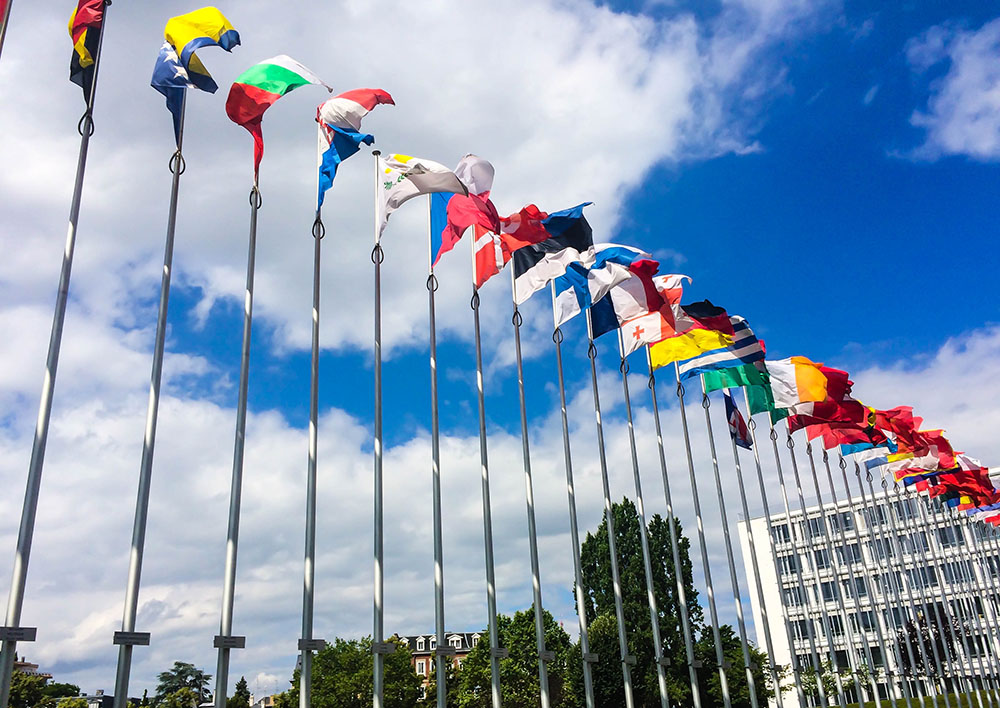By: Yasmin Lountchenko
Emmanuel Macron, the French incumbent president, has won the presidential election in France.

While Macron exceeded political analysts’ early expectations regarding his lead in the polls, the race was very narrow. Macron won 27.6% of the total first round vote, but following closely behind was right-wing opponent Marine Le Pen, who received 23.4% of the vote.
The close race during the first round of elections between Macron, a centrist running for a renewed five year term, and Le Pen, the leader of the far right National Rally party, was a reflection of the highly competitive runoff election that took place on April 24. It was also emblematic of the general dissatisfaction with Macron’s presidency.
Following the Russian invasion of Ukraine, French political focus significantly shifted away from the French elections and toward the war in the east. The ongoing conflict in Ukraine has overshadowed French domestic policy, distracting Macron from organizing a necessary campaign effort to engage voters.
Macron has assumed the role of mediator between Russian and Ukraine, which is understandable given his current role as president of the Council of the European Union. While Macron’s diplomatic involvement in Ukraine arguably gave him an initial boost in the polls, many voters grew to be frustrated with his neglect of France.
In contrast to Macron, Le Pen has focused heavily on domestic issues, and much of her campaigning strategy was directed toward increasingly prominent issues such as the cost of living and inflation. Moreover, Le Pen has branded herself to appear more moderate than her positions in the past.
She has separated herself from President Vladimir Putin, clarifying that her opinion on him has changed since the invasion, and has softened her strict stance on immigration by making an exception for French acceptance of Ukrainian refugees. Le Pen noted that she is “independent” of any foreign power and only obtained a loan for her party’s outstanding debt from the Russian bank because she never managed “to obtain a loan either in France … until now … or in Europe.”
Additionally, it should be noted that while the French left largely stood behind Macron in the 2017 election, leading up to this election cycle, it was uncertain whether they would do so again. Before the results, Pierr Mathiot, the director of Sciences Po Lille, noted that, “Macron is going to try to seduce leftist voters — and the risk for him will be that it could seem very artificial, in a way that would upset or annoy leftist voters.”
The disappointment expressed by the left points to the greater issue of French political dynamics being fractured into three general camps — an extreme left faction, an extreme right faction that supports Le Pen and a center faction that supports Macron, but is weakening in terms of influence.
Overall, the mainstream parties of the center-right and the center-left have virtually been wiped out.
In response to the first round’s results, Le Pen cited “two opposing visions for the future” of France that will be voted upon in the second round. If Le Pen had come out on top of the polls, she would have been the first far-right president in France’s history, which would have considerable consequences for the political structure of Europe.
Traditional French advocacy for European Union coordination would have been replaced with anti-EU political rhetoric and Le Pen made it clear that France would pull out of the NATO alliance “so as to be no longer caught up in conflicts that are not ours.”
With such a radical political agenda, the future of French democracy leading up to April 24 had much to do with the results of the ballot box. Although Macron prevailed in the end, the election results had the potential to usher France into a whole new era politically and socially, and were incredibly close to doing so.
A right-wing democracy could quite potentially have been the new reality for France under Le Pen. But even though the incumbent Macron won the presidency for a second term, France continues to face deep political paralysis due to the radicalized fragmentation of this election cycle.
Foreign Affairs Feature is a collaboration project between The Daily Free Press and the International Relations Review.














































































































